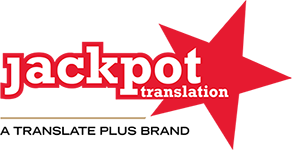
Sportsbook translation: five language problems and how to fix them
Running a multilingual sportsbooking website is no easy task. The appeal of breaking into a global market as large as online sports betting is always appealing but the reality of maintaining a brand in this industry is too much for most to manage.
Many of your challenges revolving around language, are only emphasised by the fast-paced and competitive nature of online sports betting. Luckily, we have been helping brands overcome these challenges for years and we can show you how to fix these problems as well.
#1: Sports betting laws around the world
The first thing you have to deal with is not only a language problem but also a legal one too. Sports betting laws vary around the world – or from state to state in cases like the US – and there is a world of murky grey areas when it comes to where sports betting brands are based and where they can operate.
There is no quick fix to this problem, so do not waste your time trying to find one. Get the right legal advice from day one and make sure you are covered for every market you aim to target.
#2: Translating live commentary
These days, in-game betting is not a luxury feature, people expect to be able to place bets during sporting events, as the action unfolds and this makes it challenging to deliver live commentary in every language.
This is one of the toughest challenges you will encounter when it comes to sportsbook translation, but technology is starting to make this process more manageable.
The solution is to use a mix of translation memory, machine translation and human translators to deliver content in every language quickly. Translation memory cuts out the repetition while machine translation offers a working version of any original content that human translators can check and verify before it goes live.
This combination gives you fast, accurate content in every target language as events unfold.
#3: Language selection
To maximise engagement and stop new visitors from leaving your site, you need to deliver the right language to them when they first land on your website. Sadly, there is no way to make sure you get this right every time because you have to consider that some visitors might be on holiday in a foreign-speaking country when they first discover your website or they might live in a country with multiple languages.
The best working solution for this is to use location targeting to detect which country users are visiting from and deliver the local language as a default. However, you will want to provide a clear and understandable language selection menu that makes it easy for users to switch languages when you don’t get it right the first time.
#4: Catering for sports preferences around the world
Language is not the only thing that changes when you’re running a multilingual sportsbooking website. You also need to consider how sports preferences vary in each of your target markets because football isn’t going to be the most popular sport in every country and not everyone is going to care how many goals Harry Kane scored in Russia this summer.
Make sure you localise your content to match local interest: which sports are the most popular, which competitions people care about the most and who the top teams, players and athletes are in any given area.
#5: Advertising to multilingual audiences
One thing that all of the biggest sports betting brands get right is their international marketing campaigns. You need to think beyond the limits of basic translation and consider how your advertising material should be adapted to engage the local interests of each target market. We’ve already talked about catering for different sports interests and this is also going to be pivotal to your advertising campaigns.
You’re going to experience a number of unique language problems when you try to translate your advertising material too. Creative language does not translate well and you will find direct translations do not get the response you are looking for – and this is where we use transcreation to capture the same creative impact your campaigns are designed to have.
Global markets are full of opportunity, but you need to overcome some serious language barriers before you get the chance to seize them. Translation gets you off to a good start but you need a streamlined language system in place to deliver the right kind of content to each target audience when it matters most – from every advertising campaign to the content greeting visitors when they land on your website.
- Posted by Alexandra Kravariti
- On 30th June 2018
- 0 Comments



0 Comments